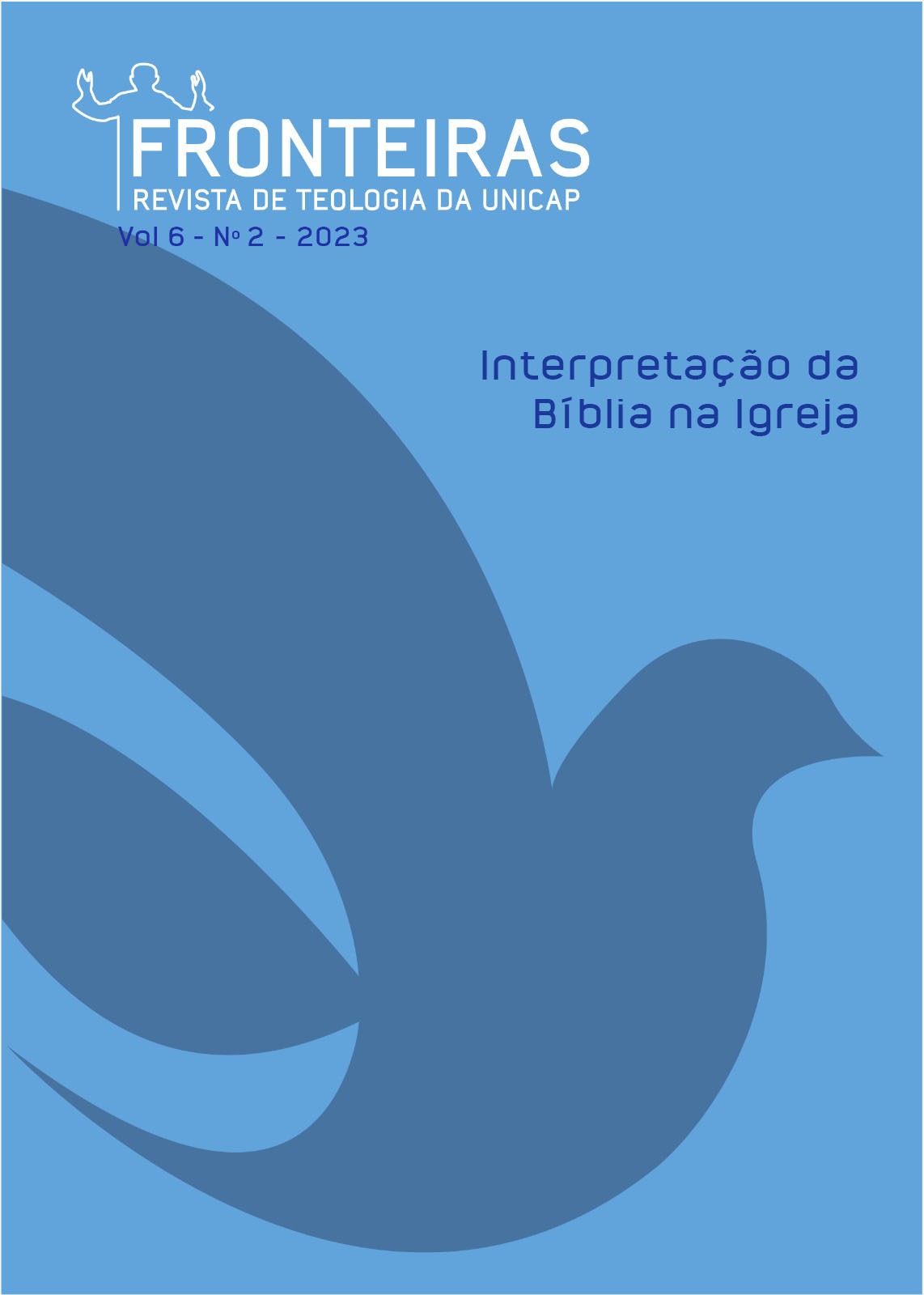Fundamentalism and dispensationalism
evangelicals and the engagement against modernity
DOI:
https://doi.org/10.25247/2595-3788.2023.v6n2.p267-286Keywords:
Israel, Palestine, Pentecostalism, Pluralism, PoliticsAbstract
In this article, we address the definition of modernity, highlighting how the evolution of this concept has repercussions in the realms of religion and individual identity, leading to a plurality that translates into a crisis of meaning. From this standpoint, the text connects such ideas with the theological and social responses that emerge as reactions to these phenomena. Subsequently, the focus shifts to the phenomenon of fundamentalism, treating it as a paradoxical consequence of modernity, which attempts to resolve the crisis of meaning by resorting to a strict interpretation of sacred texts. The analysis proceeds to discuss the impact of this fundamentalism on the attitudes of evangelical groups regarding conflicts in the Middle East, with special emphasis on the tension between Israel and Palestine. In this section, the article outlines how certain fundamentalist readings of the Bible, specifically dispensationalism, lead to a political interpretation of the sacred texts, contributing to a perspective that denies the principles of modernity and its complexities.
Downloads
References
ARENS, Eduardo. A Bíblia sem mitos: uma introdução crítica. São Paulo: Paulus, 2007.
BAUMAN, Zygmunt. O mal-estar da pós-modernidade. Rio de Janeiro: Zahar, 1998.
BERGER, Peter. Os múltiplos altares da modernidade: rumo a um paradigma da religião numa época pluralista. Petrópolis: Vozes, 2017.
BERGER, Peter; LUCKMANN, Thomas. A construção social da realidade: tratado de sociologia do conhecimento. Petrópolis: Vozes, 1985.
BERGER, Peter; LUCKMANN, Thomas. Modernidade, pluralismo e crise de sentido: a orientação do homem moderno. 3. ed. Petrópolis: Vozes, 2012.
CORREA DE ARAUJO, Jose Wiliam. A noção de consciência moral em Bernhard Haring e sua contribuição à atual crise de valores. Orientador: Nilo Agostini. 2007. Tese (Doutorado em Teologia) - Pontifícia Universidade Católica do Rio de Janeiro, Rio de Janeiro, 2007. disponível em: https://doi.org/10.17771/pucrio.acad.10103. acesso em: 4 out. 2023.
FEYERABEND, Henry. 101 Perguntas e Respostas Mais Frequentes. São Paulo: UCB, 2000.
GOERGEN, Pedro. O embate modernidade/pós-modernidade e seu impacto sobre a teoria e a prática educacionais. EccoS–Revista Científica, 2012, p. 149-169.
HABERMAS, Jürgen. O discurso filosófico da modernidade. Tradução: Luiz Sérgio Repa e Rodnei Nascimento. 1ª ed., 2ª tir. São Paulo: Martins Fontes, 2002.
LIBÂNIO, João Batista. Teologia da revelação a partir da modernidade. 2. e., São Paulo: Loyola, 1995.
MACHADO, Maria das Dores Campos; MARIZ, Cecília Loreto; CARRANZA, Brenda. Genealogia do sionismo evangélico no Brasil. Religião & Sociedade, v. 42, p. 225-248, 2022.
McDERMOTT, Gerald R. A new Christian Zionism. Providence Magazine. 2016. Disponível em: https://providencemag.com/2016/04/new-christian-zionism/.
MENDONÇA, Antônio Gouvêa; VELASQUES FILHO, Prócoro. Introdução ao Protestantismo no Brasil. 1. ed. São Paulo: Editora Loyola, 1990.
TOPEL, Marta Francisca. A inusitada incorporação do judaísmo em vertentes cristãs brasileiras: algumas reflexões. Revista Brasileira de História das Religiões. ANPUH, ano IV, nº 10, maio 2011. Disponível em: https://periodicos.uem.br/ojs/index.php/RbhrAnpuh/article/view/30382.
WEBER, Max. Ensaios de sociologia. Rio de Janeiro: LTC, 1982.
WOODS, Andy. Hermenêutica dispensacional: O Método [literal] Gramatical - Histórico. Disponível em: http://solascriptura-tt.org/EscatologiaEDispensacoes/HermeneuticaDispensacional-MetodoLiteralGramatical-Historico-AWoods.htm. Acesso em: 20 out. 2023.
Downloads
Published
Issue
Section
License
Copyright (c) 2023 Liniker Henrique Xavier

This work is licensed under a Creative Commons Attribution 4.0 International License.
Autores que publicam nesta revista concordam com os seguintes termos:
- Autores mantém os direitos autorais e concedem à Fronteiras - Revista de Teologia da Unicap o direito de primeira publicação, com o trabalho simultaneamente licenciado sob a Licença Creative Commons Attribution que permite o compartilhamento do trabalho com reconhecimento da autoria e publicação inicial nesta Revista.
- Autores têm autorização para assumir contratos adicionais separadamente, para distribuição não-exclusiva da versão do trabalho publicada nesta revista (ex.: publicar em repositório institucional ou como capítulo de livro), desde que reconheça e indique a autoria e a publicação inicial nesta Revista.
- Autores têm permissão e são estimulados a publicar e distribuir seu trabalho online (ex.: em repositórios institucionais ou na sua página pessoal) a qualquer momento depois da conclusão de todo processo editorial, já que isso pode gerar alterações produtivas, bem como aumentar o impacto e a citação do trabalho publicado (Veja O Efeito do Acesso Livre).






















